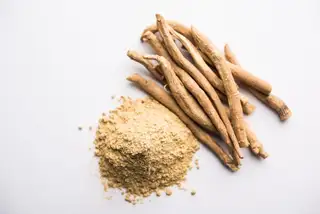
The Integration of Traditional and Modern Medicinal Herbs
In the vast landscape of healthcare, the integration of traditional and modern medicinal herbs holds great promise and significance. This convergence represents a harmonious blend of age-old wisdom and contemporary scientific advancements, offering potential solutions for various health challenges.
Traditional medicinal herbs have been an integral part of human healthcare for centuries, passed down through generations and deeply rooted in different cultures. These herbal remedies are often based on empirical knowledge and accumulated experiences of local communities. For instance, in traditional Chinese medicine, herbs like ginseng and goji berries have been revered for their ability to enhance vitality and promote overall well-being.
The strength of traditional medicinal herbs lies in their holistic approach. They consider the individual as a whole, taking into account not only the physical symptoms but also the mental, emotional, and spiritual aspects. This comprehensive perspective aims to restore balance and harmony within the body, rather than merely treating isolated symptoms.
On the other hand, modern medicinal herbs have emerged with the advancement of scientific research and technology. These are often studied and analyzed using precise laboratory methods to understand their chemical composition and mechanisms of action. For example, modern research has identified the active compounds in certain herbs and their effects on specific biological pathways in the body.
The integration of these two approaches brings several benefits. Firstly, it combines the rich knowledge and experience of traditional practices with the scientific rigor and validation of modern methods. This synergy allows for a more comprehensive understanding of the therapeutic potential of medicinal herbs.
For instance, consider the case of St. John's Wort, a traditional herbal remedy used for treating mild to moderate depression. Through modern research, its active ingredients and their interaction with neurotransmitters in the brain have been studied, providing a scientific basis for its efficacy and potential side effects.
Secondly, the integration helps in standardizing and ensuring the quality and safety of medicinal herbs. Traditional preparations may vary in composition and potency, making it difficult to guarantee consistent results. Modern techniques can be employed to establish quality control measures, ensuring that the herbs are pure, free from contaminants, and have the expected therapeutic effects.
Furthermore, this integration can lead to the development of new and more effective treatment modalities. By combining the properties of different traditional and modern medicinal herbs, novel combinations and formulations can be created to address complex diseases that may not respond well to conventional treatments alone.
However, the integration process is not without challenges. One of the main obstacles is the cultural and ideological differences between traditional and modern medical paradigms. Traditional medicine often operates within a different framework of beliefs and theories, which may clash with the reductionist approach of modern science.
Another challenge is the need for rigorous clinical trials to validate the efficacy and safety of traditional herbal remedies. Conducting these trials can be complex and costly, especially when dealing with multi-component herbal preparations.
To overcome these challenges, a collaborative and interdisciplinary approach is essential. Scientists, healthcare practitioners, traditional healers, and policymakers need to come together to bridge the gap and create a framework that promotes the seamless integration of traditional and modern medicinal herbs.
Education and awareness also play a crucial role. Healthcare professionals need to be educated about the benefits and limitations of both traditional and modern herbal medicine to provide informed advice and treatment options to patients.
In conclusion, the integration of traditional and modern medicinal herbs holds immense potential for improving healthcare. It offers a diverse range of therapeutic options that can complement and enhance existing medical practices. By respecting and leveraging the strengths of both approaches, we can unlock the true power of medicinal herbs and pave the way for more effective and personalized healthcare in the future.
As we continue to explore and embrace this integration, it is important to approach it with caution, scientific rigor, and a commitment to patient safety and well-being. The journey towards a harmonious convergence of traditional and modern medicinal herbs is an exciting one, filled with opportunities to transform the way we care for our health.





